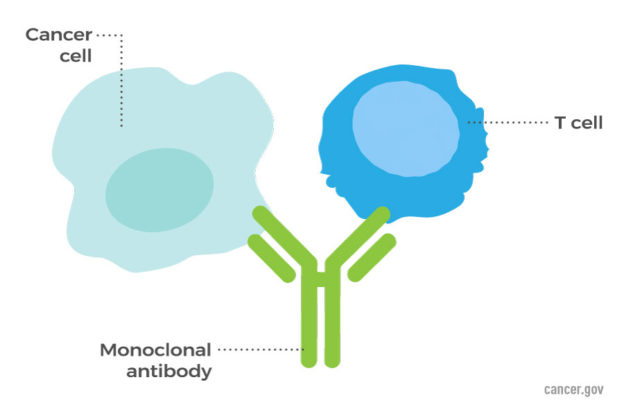A newly emerging type of cancer immunotherapy uses bispecific antibodies. These drugs attach to both immune cells and tumor cells thereby facilitating destruction of the tumor. They are called bispecific as they bind to a unique surface protein, CD3, on an immune T cell and to a antigen marker on a tumor.
Although bispecific antibodies have been studied for decades, the field was slow to develop due to difficulties in designing and producing the drugs. Those problems are now rapidly being overcome. The field continues to evolve with many new designs of bispecific antibodies being prepared. A major advantage of bispecific antibodies is that they can be mass produced in advance.
Bispecific antibody therapy joins other well-established methods of immunotherapy. CAR T cell therapy involves the use of bioengineered drugs. In this approach, T cells are separated from a patient’s blood, and a specialized receptor gene is inserted. The CAR T cells are then multiplied in the laboratory and reinserted into the patient. The CAR T cells have enhanced ability to hone onto cancer cells and destroy them. CAR T cells, however, must be prepared for each patient, an expensive and slow process.
Another important immunotherapy treatment involves the use of checkpoint inhibitors. Immune checkpoints are signals used by the immune system to control an immune response. After the immune response has completed its task, checkpoint inhibitor proteins shut down its activity to prevent the immune system from destroying normal tissue. Cancer cells can develop the means to stimulate these proteins to prevent the immune system from attacking the cancer. Checkpoint inhibitor drugs known as monoclonal antibodies can block this action.
All three immunotherapies have their limitations, so many researchers now believe that the most effective therapy could involve using them in combination.
Reference
